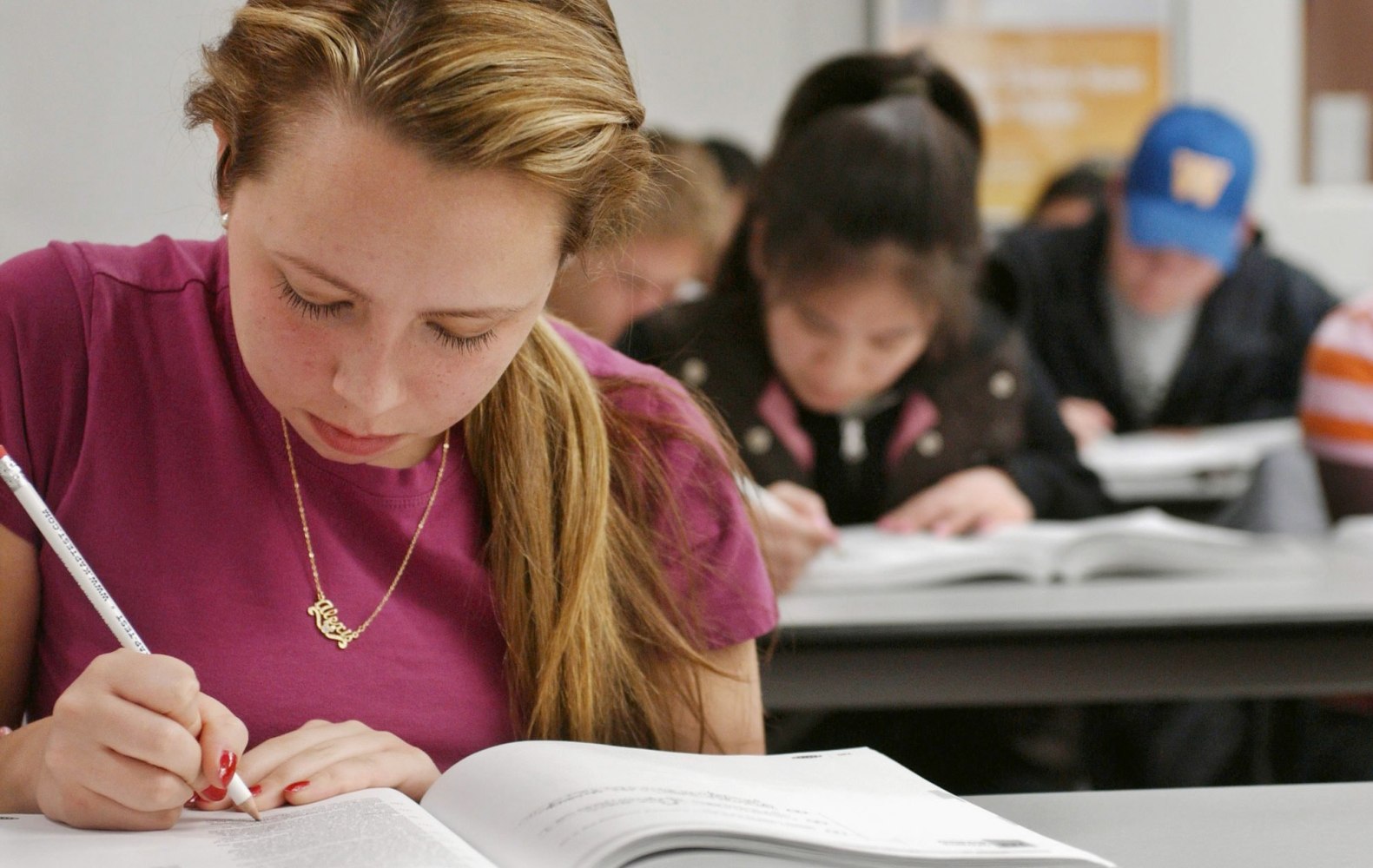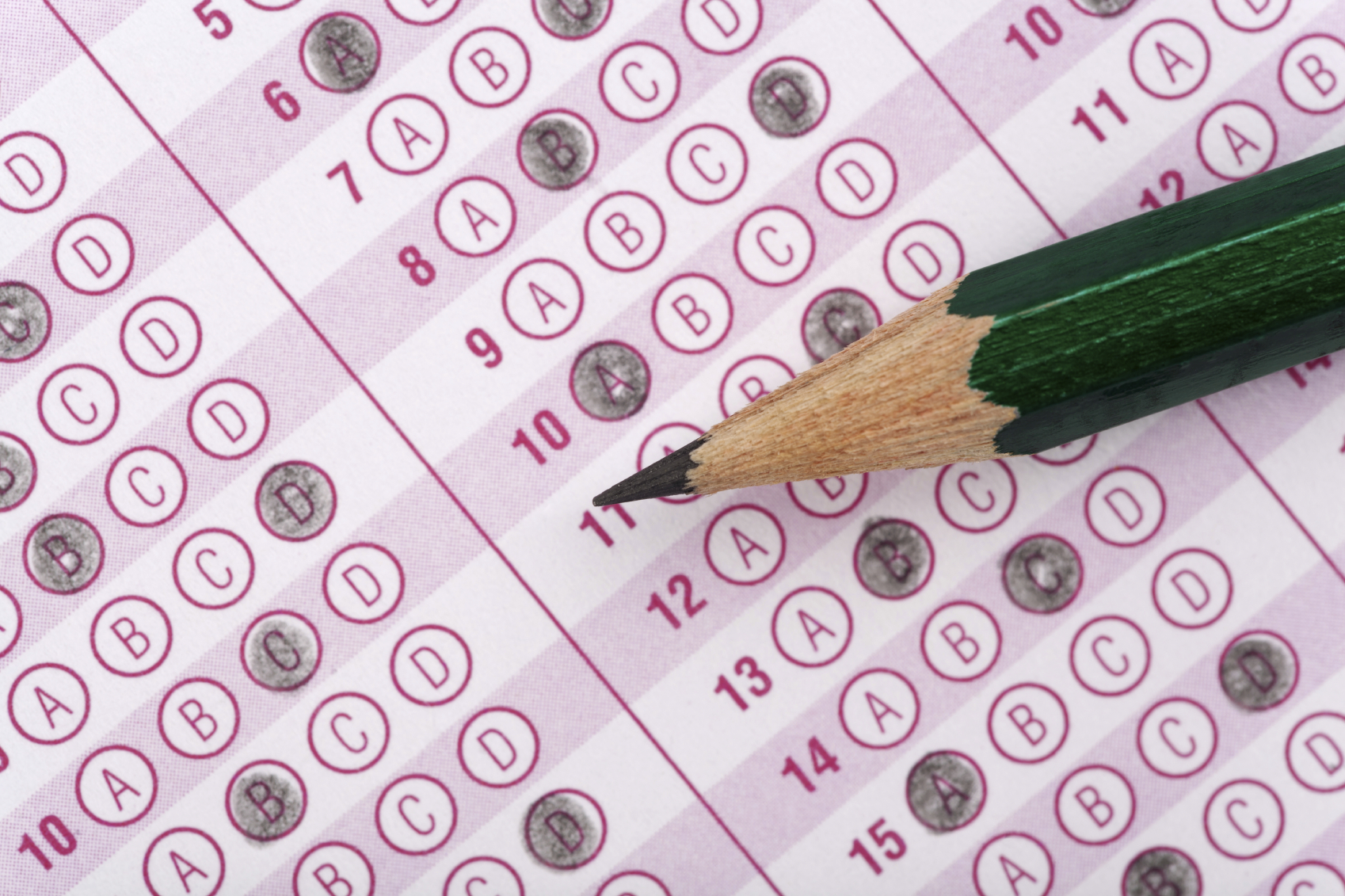Ask any high school Senior going through the college admissions process how it’s going and they will all respond with the same answer: stressful. With emotions running high as one phase in their lives comes to an end, students are faced with a huge decision that will affect the rest of their lives.
However, before they are able to make this decision, they have to worry about whether a college will even accept them. Seniors applying to schools must write essays, worry about grades, gather every last extracurricular activity to pad their resumes and last, but definitely not least, take standardized tests.
The SAT and ACT are both high stake, stressful barriers to any student hoping to continue their education. Ironically, college admission officers have begun to doubt the accuracy and usefulness of these tests, and many colleges choose to no longer use these as a means of evaluation.
Americans first used standardized testing in higher education during the 20th century. First came the SAT, then a few years later the ACT followed. Colleges adopted standardized testing because the exams were believed to provide a standard and consistent evaluation of all students across America.
The test is consistently presented and graded; every few months the same test is offered, on the same day at the same time, to students across the nation, which is meant to create a fair way to evaluate the large mass of students competing for spots in American colleges. However, in 2007 Au Wayne completed a study on high stakes testing and its effectiveness that raised questions about the accuracy and fairness of standardized tests.
Au Wayne defined a test as “high stakes” when “its results are used to make important decisions that affect students.” Under this umbrella of tests falls the standardized ones used in the college admissions process.
Au Wayne’s study found that, other than simply causing severe anxiety, such tests have narrowed educational programs to focus solely on what the tests will cover, instead of cultivating a well-rounded curriculum that will allow students to learn the most and remember what they were taught. Wayne’s study brought forward the question: Are these tests helping or hurting us?
As more people began to doubt the once powerful standardized test as a way of evaluation, more problems began to surface. Created to be exactly “equal” among all students, equality required the assumption that everyone received equal education.
Unfortunately, not everyone learns the same material in high school, and often the test measures differences in educational background and family resources instead of the prospect for success in college. Some areas offer much better education than others, putting higher income students at an immediate advantage.

Higher income students also have access to more resources, such as student materials and private tutors, and are much more likely to have family members who have attended college and been through the testing process before.
On the other hand, lower income students may live in places with poorer public education systems and may also have little access to test prep resources and information. Practicing taking standardized tests often improves performance, which further calls into question the accuracy of these tests to predict success in college.
As previously stated, the SAT and ACT are high stakes tests. Many students with learning disabilities, anxiety or attention disorders struggle while testing under such strenuous conditions. Although extra time is occasionally offered, it usually isn’t enough to make up for the difficulties these students have with high stakes testing.
There is also evidence that shows that standardized tests are racially biased. In the past year, the average SAT score for white students has remained the same, while the scores of African-American students have declined.
The average score for African American students trails that of white students, even in situations where both parties are of equal economic and academic backgrounds. All of the problems with standardized tests bring to light that the issue is with the tests themselves, not the students who are taking them.
Since 2005, almost two hundred schools have begun to deemphasize the use of ACT and SAT standardized tests as a means of primary evaluation. Some of the leaders of this movement include highly ranked schools such as Sarah Lawrence, Franklin and Marshal and Holy Cross. These schools instead use a test optional policy, generally meaning that students are no longer required to submit SAT or ACT scores.
Test Optional Policies differ by school as some, like Hampshire College, don’t require any students to submit any form of standardized test. Others, like Virginia Commonwealth University, allow students with a specific grade point average or higher to exempt themselves from submitting scores. However, it is important to note that removing the standardized test scores from an application means that the other sections will be more heavily weighted, including essays and grades.
Many other schools have moved to a test flexible policy for admissions. Testing can be expensive, and multiple attempts of the ACT or SAT is an expense that many families cannot afford. Instead of forcing students to retake the same test multiple times to get an ideal score, test flexible policies allow a variety of standardized test scores to support a student’s application.
One school with this policy, Colorado College, allows a student to pick three scores from a list of tests that the student thinks best represents his or her achievements. Other highly ranked schools that have similar test flexible policies include: Middlebury, Wake Forest, NYU and Drexel University.
While originally intended as a fair way to equally evaluate the high volume of students applying to universities across the country, standardized tests are no longer the best way to measure a student’s success and potential.
In fact, many students are being denied opportunity because of the unfairness of these tests. Many highly ranked universities now provide alternatives, so that they can better evaluate whether or not a student is a good fit for the school. If your school hasn’t yet reviewed its policy, look into what you can do to help create a fair playing field for the many students who want to continue their education in the future.


















A comprehensive database listing 970+ accredited, bachelor-degree granting institutions that do not require all or many applicants to submit ACT/SAT scores before admissions decisions are made is available free online at http://www.fairtest.org/university/optional — the list includes more than 280 colleges and universities ranked in the top tier of their respective categories
[…] https://studybreaks.com/college/are-standardized-tests-fair-evaluation-students/ […]
[…] tests is the preparation they receive from their school and third party resources. In another article, the author talks about the unfairness of students taking the same test. The test can be seen as an […]